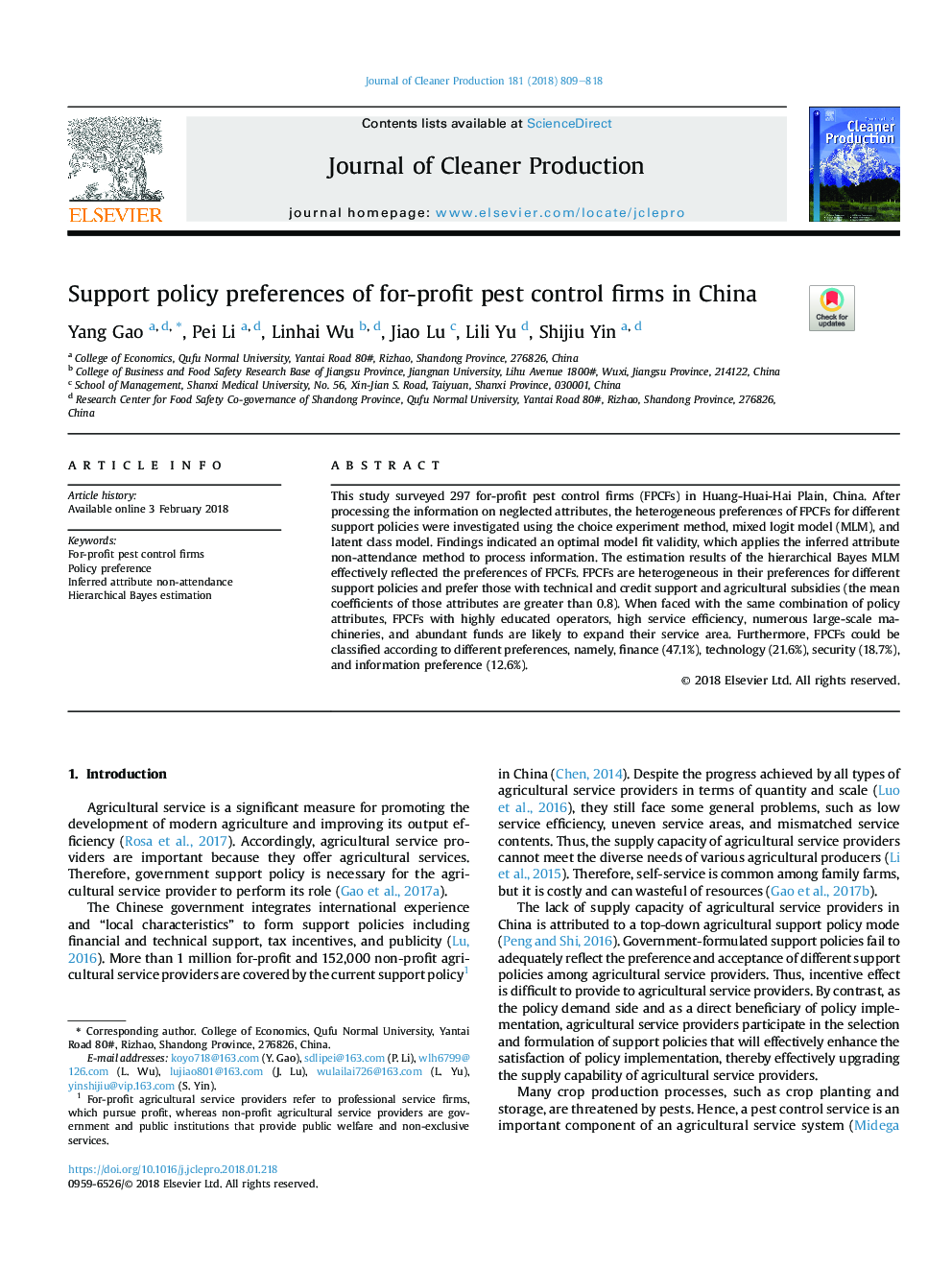| Article ID | Journal | Published Year | Pages | File Type |
|---|---|---|---|---|
| 8097807 | Journal of Cleaner Production | 2018 | 10 Pages |
Abstract
This study surveyed 297 for-profit pest control firms (FPCFs) in Huang-Huai-Hai Plain, China. After processing the information on neglected attributes, the heterogeneous preferences of FPCFs for different support policies were investigated using the choice experiment method, mixed logit model (MLM), and latent class model. Findings indicated an optimal model fit validity, which applies the inferred attribute non-attendance method to process information. The estimation results of the hierarchical Bayes MLM effectively reflected the preferences of FPCFs. FPCFs are heterogeneous in their preferences for different support policies and prefer those with technical and credit support and agricultural subsidies (the mean coefficients of those attributes are greater than 0.8). When faced with the same combination of policy attributes, FPCFs with highly educated operators, high service efficiency, numerous large-scale machineries, and abundant funds are likely to expand their service area. Furthermore, FPCFs could be classified according to different preferences, namely, finance (47.1%), technology (21.6%), security (18.7%), and information preference (12.6%).
Related Topics
Physical Sciences and Engineering
Energy
Renewable Energy, Sustainability and the Environment
Authors
Yang Gao, Pei Li, Linhai Wu, Jiao Lu, Lili Yu, Shijiu Yin,
